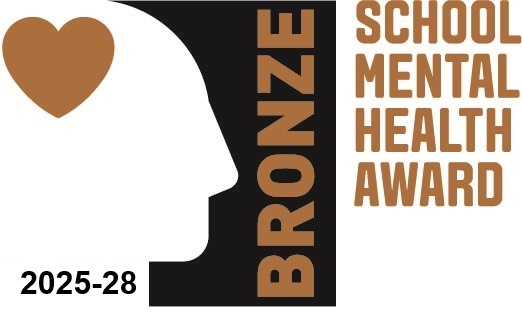Results Days - August 2020
Results Days – August 2020
Dear Parents and Carers,
I am writing today to update you on the collection of exam results in August. We know that things can change very quickly in the current climate but these are important days and I wanted to communicate plans with you as soon as possible. I am sure that you will have lots of questions about the process; we’ve put together a frequently asked questions document that we hope will provide some answers and reassure you that we are doing everything we can to work with students and their families.
Due to the Government’s directive to ensure 2-metre social distancing which will ensure the safety of students and staff, the following arrangements will be operational for the collection of year 11 and year 13 results:
Year 13 – Thursday 13th August 2020
Students should aim to arrive from 0800 and split dependent on whether they are UCAS or non-UCAS applicants into the sports hall and the canteen. The early start is to ensure students who need to go through clearing have time to do this.
Non-UCAS applicants > 0800 – enter via side gate and queue outside (keeping 2 metres apart) to go into the sports hall
UCAS applicants > 0800 – enter via main gate queuing outside reception (keeping 2 metres apart) to go into the canteen
Year 11 (also including year 12 and year 13 GCSE resit students) – Thursday 20th August 2020
Students should aim to arrive within the following designated times, queuing outside reception (keeping 2 metres apart).
Surname A-I > 0930 – 1015
Surname J-Q > 1015 – 1100
Surname R-Z > 1100 – 1145
Students will enter the collection point one at a time to collect their results from the results desk. On receipt of their results, they will exit and then leave the building unless they require staff support and at that point, a safe and secure area will be available.
To restrict the numbers entering the site, we ask that if you attend with only one family member or friend. That means for each person collecting results there will be an absolute maximum of two people.
Unfortunately, due to the ongoing Covid-19 restrictions, there will be no opportunities for any group photographs and we will not be doing any media coverage. Students will be encouraged, for the safety of all, not to group on-site or outside the Academy gates once they have collected their results. If students have any queries or concerns regarding their results they should speak to a member of staff.
All schools have entered Centre Assessment Grades (CAG). To make the process fair for everyone, exam boards are now standardising the centre assessment grades across all schools and colleges. The exam boards will use evidence such as prior attainment (at school or college level, not individual student level) and national level grade distributions so that final grades are aligned across all schools and colleges and of equal value to previous years. This will make sure that students aren’t disadvantaged if some schools are more generous than others when making their judgements. Based on this, individual grades may be adjusted upwards or downwards. This means that the final grade awarded to a student could be different from the one their school or college has sent.
Students will also have the option to re-sit their exams in the autumn, or next summer (2021) if they wish to. If students do choose to sit exams, both grades (the calculated grade awarded in August 2020 and a later exam result) will stand. Students should be reassured that certificates will look the same as in any other year.
There has also been additional guidance and clarify for BTEC students which can be found here: https://bit.ly/3ee4tcq
If, after reading the FAQ, you still have concerns and need to speak to me or a member of my leadership team, please send an email to [email protected] or by telephone 01384 566598, we will do our best to answer any questions.
Thank you for your continued support.
Yours faithfully,
Dr Lisa Mason
Principal
Ormiston Forge Academy
Please follow Government advice by washing your hands frequently and reduce your social interactions – here is some Government guidance on staying alert and safe: https://bit.ly/2T0FT7j
.
Risk Assessment for Results Days 2020 – DOWNLOAD
.
.
Download the Centre Assessed Grades FAQ PDF HERE
.
FAQ Document – Purpose
The purpose of this document is to provide pupils and parents answers to questions regarding exam grades.
- Ofqual GCSE and A-level consultation outcomes and autumn exam series proposals
www.gov.uk/government/news/ofqual-gcse-and-a-level-consultation-outcomes-and-autumn-exam-series-proposals - Infographic: Process for awarding GCSEs, AS and A-levels summer 2020
www.gov.uk/government/news/ofqual-gcse-and-a-level-consultation-outcomes-and-autumn-exam-series-proposals#infographic-of-the-awarding-process - What is Ofqual? (worth reading this as we refer to them quite a lot in this FAQ)
The Office of Qualifications and Examinations Regulation (Ofqual) regulates qualifications, examinations and assessments in England.
Ofqual was set up in April 2010 under the Apprenticeships, Skills, Children and Learning Act 2009 and is also covered by the Education Act 2011. Ofqual is a non-ministerial government department with jurisdiction in England. They have 200 permanent employees as of January 2019 and are based in central Coventry. They maintain standards and confidence in qualifications in England: GCSEs, A-levels, AS levels, vocational and technical qualifications. They are independent of government and report directly to Parliament. - Grading in 2020 – information for students’ video: See PDF above.
- Why haven’t you given my child the grade that they were predicted on their last report?
We were asked to do two things by Ofqual for our students. First, we had to make a judgement about the grade that each student was most likely to have achieved if they had taken their exams in summer 2020. To do this, we had to take account of all available evidence including school and college records, mock exams, and non-exam assessment (NEA) that a student has done.
It is worth noting that NEA is not just coursework components, but also test scores and classwork/homework grades etc. achieved throughout the duration of a course.
Second, we had to rank each student relative to others for who we also judge would have got the same grade. For example, if we judged that 8 students would have been most likely to achieve a grade B at A-level or a grade 4 at GCSE, we had to rank those 8 students from 1 (the most secure/most likely to achieve the grade) to 8 (the least secure/least likely).
Those judgements had to be holistic, based on the range of evidence that we had. So, students shouldn’t worry about one disappointing mock exam result if their NEA work wasn’t finished or they haven’t been able to complete to their usual standard – or at all – any work set after schools and colleges closed. We took all the evidence into account and came to a balanced view.
While schools and colleges do not routinely work in this way, teachers are highly experienced at making assessment decisions and evidence shows they can rank order their students with a high degree of accuracy. Many will already be familiar with ranking students where they do this in subjects with NEA. - How do I appeal about the grades?
Ofqual is committed to doing all that it can to make sure students are not disadvantaged by these unprecedented circumstances, including allowing for an appeal where appropriate. In line with the direction given by the Secretary of State for Education, appeals will be allowed in cases where the academy believes it has made an error when submitting information; or similarly, if we believe an exam board made a mistake when calculating, assigning or communicating a grade. Additionally, a student who had evidence of bias or discrimination should raise this with their centre.
Ofqual has given serious consideration as to whether a student could appeal against their school or college’s centre assessment grades and position in the rank order. On balance, they have decided it would not be in the interests of all students, or the fairness of the arrangements overall, for a number of reasons. Firstly, the appeal would have to be undertaken by someone better placed than the student’s teachers to judge the grade they would likely have received if the exams had taken place – in the unique circumstances of this summer, Ofqual do not believe there is any such person.
An appeal would also require students to have access to the information their school or college put forward before being submitted to exam boards. Ofqual have decided that this may compromise the reliability of this year’s approach. Furthermore, if one student successfully appealed against their position in the rank order, it would have negative implications for other students who would, in turn, need to be given an opportunity to appeal. Ofqual intends that students who feel that their grades from the summer do not reflect their ability will have the opportunity to take their exams in the autumn series or in summer 2021. If they choose to do this, students will be able to use the higher of the two grades for future progression. - How can I make a formal complaint?
In the first instance, we would ask you to contact the Principal and discuss your complaints directly. However, if you feel you need to make a formal complaint then you can find the policy and the complaints form on our website. - Why couldn’t you give students the grade they deserve?
Centre assessment grade judgements have to be made objectively. This is particularly important in addressing the concerns some may have about the possibility for bias in this process and its potential impact on some groups of students, or those with certain characteristics. Our overriding priority and the guidance that we received is to ensure that students are rewarded for their hard work over the time of their study. - When can my child re-sit these exams?
Students who do not believe their calculated grade reflects their performance will have the opportunity to sit examinations. DfE has announced that there will be an opportunity for students to sit exams in the autumn and Ofqual has confirmed these exams will be available in all subjects. Where a student wishes to sit an exam, DfE’s guidance on centre responsibility for autumn GCSE, AS and A-level exam series sets out that they expect the centre that entered them for the summer series to enter them in the autumn series and take overall responsibility for ensuring that they have somewhere appropriate to sit their exams. Students will also have the option to sit their examinations in summer 2021. - Why has my child been punished because the Academy failed to open and teach the required subjects?
Nobody has been punished and every student across the country due to take exams this summer were in exactly the same position. Our guidance was to take account of all available evidence including schoolwork, assignments, progress, mock exams, and non-exam assessment (NEA) that a student has done in order to recommend a grade. The same criteria, regulation and audit was applied fairly across all students by exams boards and Ofqual. - What information have you used to decide on the grade?
Our guidance was to take account of all available evidence including school and college records, mock exams, and non-exam assessment (NEA) that a student has done in order to recommend a grade. - Who decided what the grade should be?
Teachers and heads of department know their students, and they are best placed to make these judgements. The grades that the teachers recommended went through a process with Ofqual and the exam boards to ensure that they were fair and balanced when compared against the rest of the education sector. - Did the academy make the final decision?
No, the final decision was regulated and audited by the exam boards and by Ofqual. - My child wasn’t well/was absent/had supply teacher and didn’t perform at their best in the mock exam. It is unfair that my child is being punished for this.
Those judgements had to be holistic, based on the range of evidence that we had. So, students shouldn’t worry about one disappointing mock exam result if their NEA work wasn’t finished or they haven’t been able to complete to their usual standard – or at all – any work set after schools and colleges closed. We took all the evidence into account and come to a balanced view. - My child can no longer start the college course that they were planning to – what can I do?
Colleges will be making considerations due to the disruption this year and Ofqual have assured us that no student will be disadvantaged. If your child is struggling to secure a place, please work with the appropriate key stage team and our careers advisors and let us support you. - My child was getting good marks in class recently, but these don’t match the grade.
Grades are balanced across the period of time that they have been studying the subject, they have to be holistic and based on a range of evidence and not just class grades. Whilst it may feel that some recent good grades haven’t been reflected in the final grade, we can assure you that they have. - We weren’t informed that my child was on route to this low grade – we would have helped if we’d have known. We feel that we have been lied to by the school.
On balance, there should not be any shocks with final grades and if there are then this is worth a discussion. We would be looking at reports, classwork completed and any mock exam results which will all have been available and communicated over the period of study. - What is standardising?
Standardising makes sure that results are as fair as possible by using statistical evidence to ensure the same grading standards are applied across all schools and colleges from one year to the next. Exam boards standardise every year, but with no exams this summer, it will have a bigger role to play in making sure results are as fair as they can be and of equal value to previous years.
This summer, all exam boards will follow the same standardisation process set out by Ofqual. It will take schools’ centre assessment grades and consider them against:
* past results for each school or college and changes in its year-on-year entry profile
* prior attainment information for this year’s students
* national outcomes for each subject in previous years.
Combining centre assessment grades with this data ensures consistency of grading standards across the country. This is important as some schools may have been more generous than others when making their judgements and ensures they are treating this year’s cohort consistently with any other year. As a result, individual grades may be adjusted upwards or downwards which means that, although the overall rank order of students will be preserved, final grades awarded to a student could be different from the one their school or college sent to the exam board. - How will centre assessment grades be standardised?
(Ref: Ofqual/20/6625 June 2020)
To make sure that grades are fair between schools and colleges, exam boards will put all centre assessment grades through a process of standardisation using a model developed with Ofqual. The standardisation model will draw on the following sources of evidence: historical outcomes for each centre; the prior attainment (Key Stage 2 or GCSE) of this year’s students and those in previous years within each centre; and the expected national grade distribution for the subject given the prior attainment of the national entry. For AS/A-levels, the standardisation will consider historical data from 2017, 2018 and 2019. For GCSEs, it will consider data from 2018 and 2019, except where there is only a single year of data from the reformed specifications. Standardisation will not change the rank order of students within each school or college; nor will it assume that the distribution of grades in each subject/centre should be the same.
However, if grading judgements in a subject in some schools and colleges appear to be more severe or generous than others, exam boards will adjust the grades of some or all of those students upwards or downwards accordingly. This means that the centre assessment grades submitted by schools and colleges and the final grade that students receive could be different. It also means that adjustments to centre assessment grades might be different in different subjects. As with other years, the statistical model will consider prior attainment at school or college level, not at individual student level. As such, students’ individual performance will not be predetermined by their prior attainment at KS2 or GCSE. - When are the results out?
Students should be reassured that certificates will look the same as in any other year and they will be issued their results on the expected dates in August:
AS and A-levels: Thursday 13 August
GCSEs: Thursday 20 August
There is a change of exam results embargo time – from 6:00 to 8:00am. - What about exams and assessments in 2021?
For the summer 2021 exams, the DfE has recognised that students in years 11 and 13 will have missed a critical period of their education due to lockdown in the 2019 to 2020 academic year. It is vital that these pupils are able to catch up and access exams that lead to the qualifications they need to progress. They are, therefore, planning on the basis that GCSEs and A-levels will take place in summer 2021 but with adaptations, including those which will free up teaching time. Ofqual will launch a consultation on proposed adaptations to exams shortly.






